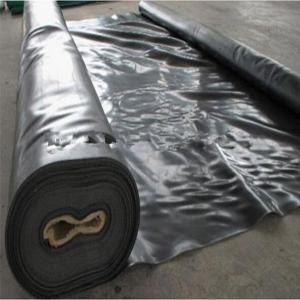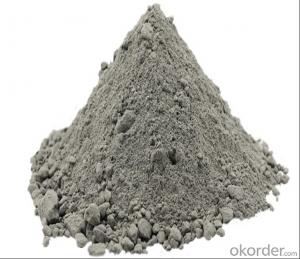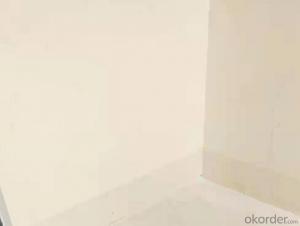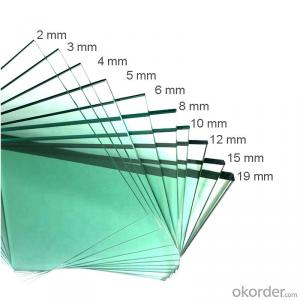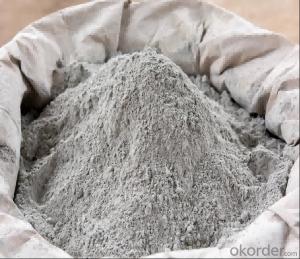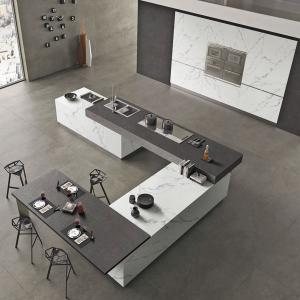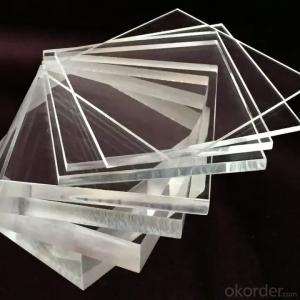1.0mm/1.2mm/1.5mm EPDM Rubber Roofing Waterproof Membrane
- Loading Port:
- Shanghai
- Payment Terms:
- TT OR LC
- Min Order Qty:
- 1000 m²
- Supply Capability:
- 100000 m²/month
OKorder Service Pledge
OKorder Financial Service
You Might Also Like
Product description
ROOF WATERPROOF SYSTEM-
EPDM MEMBRANE/COIL is made from ternary ethylene-propylene rubber. With the best performance among high polymer waterproof materials, EPDM is of exceptional elasticity and will not split or crack under normal building movement.
Application Scope
• Roofs, Basement, Toilet
•Industrial and civil building waterproofing
•Geo-synthetic liner for swimming pool, channels, irrigation system
•Especially suit for projects with high requirements in durability, anti-corrosion and deformation
Advantagee
•Excellent weather-ability, durability and size stability
•Good adaptability to high and low temperature, UV resistant and anti-corrosion
•High tensile strength and good elongation, accommodating to structure movement
•Easy installation, solid joint, and no environmental pollution
•Good rooting penetration resistance
•Service life up to 50 years
Storage:
Shelf life is 12 months. Store in a cool and dry place with
original packing.
5,Demension:
1.2mmx1.2mx20m;1.5mmx1.2mx20m;2.0mmx1.2mx20m
Advantages

Technical Parameters
| Item | Index | ||||||
| 1 | Thickness of resin layer of the middle fabric ,mm≥ | - | - | 0.40 | 0.40 | 0.40 | |
| 2 | Tensile performance | Max tensile strength,N/cm ≥ | - | 120 | 250 | - | 120 |
| Tensile strength,NPa ≥ | 10 | - | -10 | - | - | ||
| Max elongation% ≥ | - | - | 15 | - | - | ||
| Breaking elongation % ≥ | 200 | 150 | - | 200 | 100 | ||
| 3 | Heat treatment size change rate%≤ | 2.0 | 1.0 | 0.5 | 0.1 | 0.1 | |
| 4 | Cold bonding | -25°c No cracks | |||||
| 5 | Watertightness | 0.3mPa,2h waterproof | |||||
Packaging & Shipping
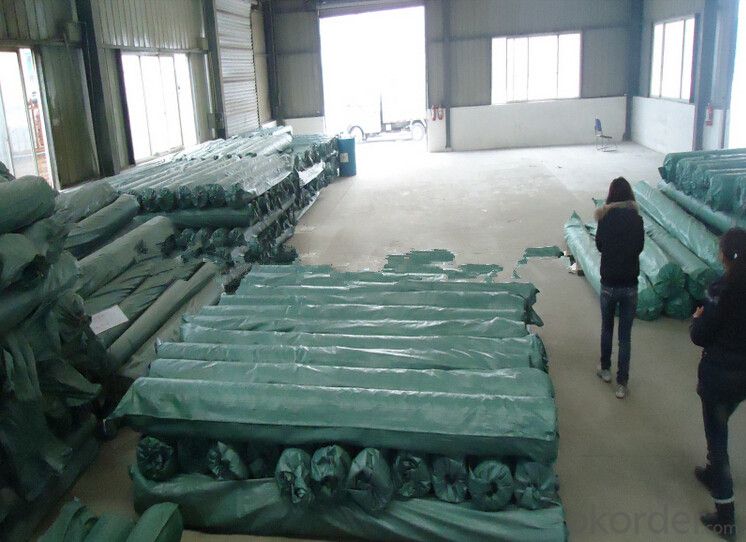
Our service
1.sample: the sample is free ,you only should pay for the freight.
2.If you order to us ,we must promise the quality ,if some quality problem happened,
1)We will dispatch our Quality and Problems Appraisers to make a confirmation
2) Have a negotiation of the compensation and sign agreements
3) Our After-Sales Department will perform the duties as the agreements.
product show
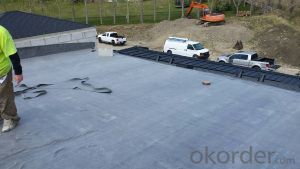
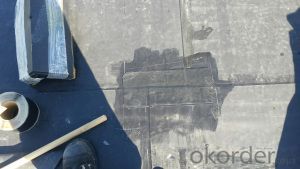
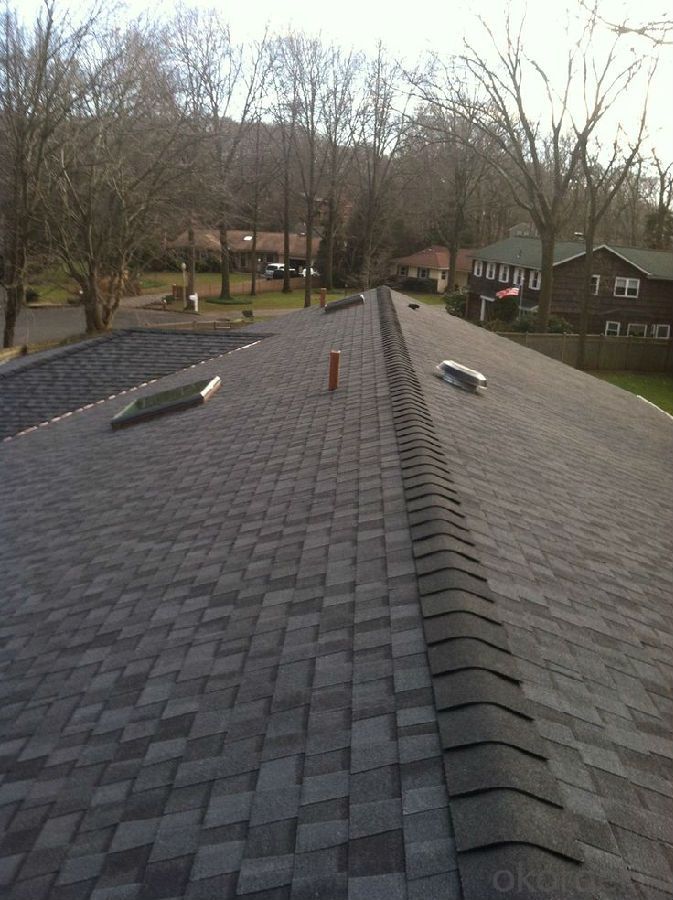
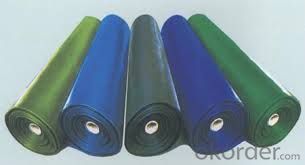
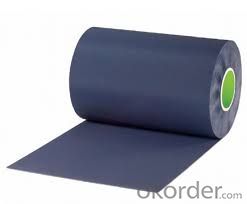
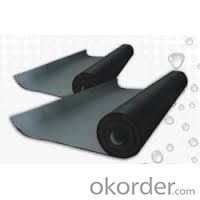
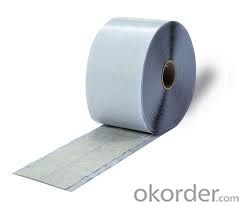
factory show
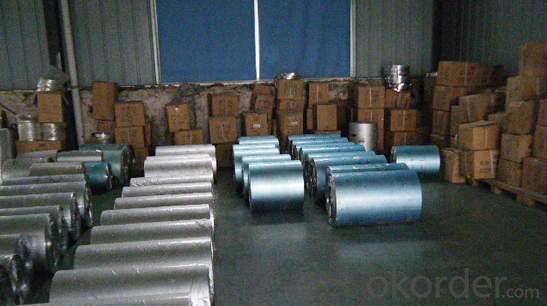
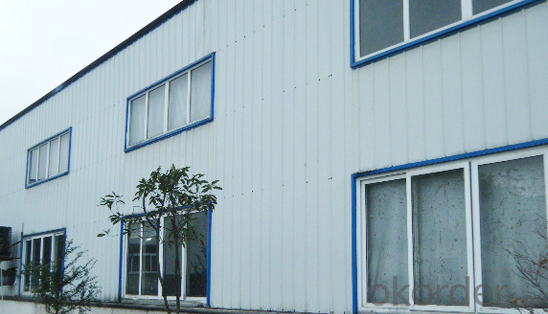
FAQ
Q: What's the de6abf1fe186f8d58506cbcfe46eed814d.jpglivery time ?
A: 3-5 days for 1-600 rolls, 10-15 days for container.
Q: What's the payment terms ?
A: TT/LC
Q: How do you make replacement with quality problems ?
A: New replacement will be packed into your next order or send to you directly after receive video or photo about quality problems.
- Q:How to choose waterproof membrane
- Third, from the physical quality of strict quality off From the appearance of visual inspection can only distinguish the composite tire coil, but failed to solve the selected products meet the quality requirements, which requires users to have the ability to test the technical institutions, according to the corresponding product standards for soluble content The physical properties of the factory test, with the soluble content of the project to control the product contains the amount of asphalt and modifier, but also to reveal the product used in the real face of the fetus can determine whether it is consistent with the product mark.
- Q:Can a waterproofing membrane be used for train platforms?
- Yes, a waterproofing membrane can be used for train platforms. Waterproofing membranes are commonly used in construction to provide a protective barrier against water and moisture. By applying a waterproofing membrane to train platforms, it helps prevent water ingress, which can cause damage to the structure and pose safety risks.
- Q:Can a waterproofing membrane be used on foam block surfaces?
- Yes, a waterproofing membrane can be used on foam block surfaces. Foam blocks, such as expanded polystyrene (EPS) or extruded polystyrene (XPS), are often used as insulation in buildings. However, foam blocks are not inherently waterproof and can absorb moisture if left unprotected. To prevent water infiltration and potential damage, a waterproofing membrane can be applied to the foam block surfaces. The membrane acts as a barrier, preventing water from seeping into the foam and protecting it from moisture-related issues such as mold, mildew, or degradation. It is important to select a waterproofing membrane that is compatible with foam block surfaces and follow the manufacturer's instructions for proper application. Additionally, it is recommended to consult with a professional or a building engineer to ensure the appropriate waterproofing solution is chosen for the specific foam block application.
- Q:Can a waterproofing membrane be used on tunnels with railway systems?
- Tunnels with railway systems can indeed utilize waterproofing membranes. These membranes are widely employed in tunnel construction to prevent water ingress and safeguard the tunnel structure against deterioration. By effectively sealing the tunnel walls, ceilings, and floors, they successfully prevent water from seeping into the tunnel, thereby averting potential damage to the railway system or infrastructure. Specifically designed to withstand the high-pressure conditions and constant vibrations associated with railway operations, these membranes are typically composed of durable materials like PVC, HDPE, or modified bitumen. Such materials not only offer excellent waterproofing properties but also ensure long-term durability. Moreover, these membranes can be effortlessly installed during the tunnel's construction phase or retrofitted onto existing tunnels, causing minimal disruption to railway operations. In essence, the utilization of waterproofing membranes has proven to be a reliable and efficient technique for ensuring the structural integrity and longevity of tunnels with railway systems.
- Q:How long does it take for a waterproofing membrane to cure or dry?
- The time it takes for a waterproofing membrane to cure or dry can vary depending on the specific product and environmental conditions. In general, most waterproofing membranes require at least 24 hours to cure and fully dry. However, it is important to note that this timeframe can be influenced by factors such as temperature, humidity, and the thickness of the applied membrane. Additionally, some products may have specific curing instructions provided by the manufacturer, so it is always recommended to follow the guidelines provided with the particular waterproofing membrane being used. Overall, allowing sufficient time for the membrane to cure and dry is crucial to ensure its proper functionality and effectiveness in providing long-lasting waterproofing protection.
- Q:Can a waterproofing membrane be repaired if damaged?
- Yes, a waterproofing membrane can be repaired if damaged. The extent of the damage will determine the repair method and whether it can be fixed on-site or if a professional needs to be called in. Small punctures or tears in the membrane can often be patched with a sealant or adhesive, while larger or more severe damage may require a section of the membrane to be replaced. It is important to address any damage promptly to prevent further water penetration and potential structural issues.
- Q:Can a waterproofing membrane be installed on a sloping surface?
- Yes, a waterproofing membrane can be installed on a sloping surface. In fact, it is often necessary to install a waterproofing membrane on sloping surfaces to ensure proper water drainage and prevent water seepage.
- Q:Can a waterproofing membrane prevent leaks from occurring?
- Yes, a waterproofing membrane can prevent leaks from occurring. A waterproofing membrane is a thin layer of material that is applied to a surface to make it completely impermeable to water. It acts as a barrier, preventing water from seeping through and causing leaks. When properly installed and maintained, a waterproofing membrane can effectively protect various structures such as roofs, basements, bathrooms, or foundations from water damage. It is designed to withstand the forces of nature, including rain, snow, and moisture, and can significantly reduce the risk of leaks and water infiltration. However, it is important to note that the effectiveness of a waterproofing membrane also depends on the quality of the product, proper installation, and regular maintenance.
- Q:Can a waterproofing membrane be used in permanent or long-term structures?
- Yes, a waterproofing membrane can definitely be used in permanent or long-term structures. Waterproofing membranes are designed to provide a protective barrier against water infiltration, making them ideal for structures that need long-term protection from moisture such as buildings, bridges, tunnels, and underground structures. These membranes are typically made of durable materials like modified bitumen, PVC, EPDM, or polyurethane, which offer excellent resistance to water, UV rays, and other environmental factors. When installed correctly, a waterproofing membrane can significantly extend the lifespan of a structure by preventing water damage, mold growth, and structural deterioration. Therefore, it is highly recommended to use a waterproofing membrane in permanent or long-term structures to ensure their durability and longevity.
- Q:Is a waterproofing membrane resistant to gasoline or other petroleum-based substances?
- Yes, a waterproofing membrane is typically resistant to gasoline and other petroleum-based substances. Most waterproofing membranes are made from materials such as polyurethane or PVC, which are known for their resistance to chemicals and petroleum products. This resistance ensures that the membrane remains intact and effective in preventing water infiltration even when exposed to gasoline or other petroleum-based substances. However, it is important to note that the specific resistance level may vary depending on the type and quality of the waterproofing membrane used. It is advisable to consult with a professional or check the product specifications to ensure that the chosen membrane is suitable for the intended application involving gasoline or petroleum-based substances.
1. Manufacturer Overview |
|
|---|---|
| Location | |
| Year Established | |
| Annual Output Value | |
| Main Markets | |
| Company Certifications | |
2. Manufacturer Certificates |
|
|---|---|
| a) Certification Name | |
| Range | |
| Reference | |
| Validity Period | |
3. Manufacturer Capability |
|
|---|---|
| a)Trade Capacity | |
| Nearest Port | |
| Export Percentage | |
| No.of Employees in Trade Department | |
| Language Spoken: | |
| b)Factory Information | |
| Factory Size: | |
| No. of Production Lines | |
| Contract Manufacturing | |
| Product Price Range | |
Send your message to us
1.0mm/1.2mm/1.5mm EPDM Rubber Roofing Waterproof Membrane
- Loading Port:
- Shanghai
- Payment Terms:
- TT OR LC
- Min Order Qty:
- 1000 m²
- Supply Capability:
- 100000 m²/month
OKorder Service Pledge
OKorder Financial Service
Similar products
New products
Hot products
Related keywords
